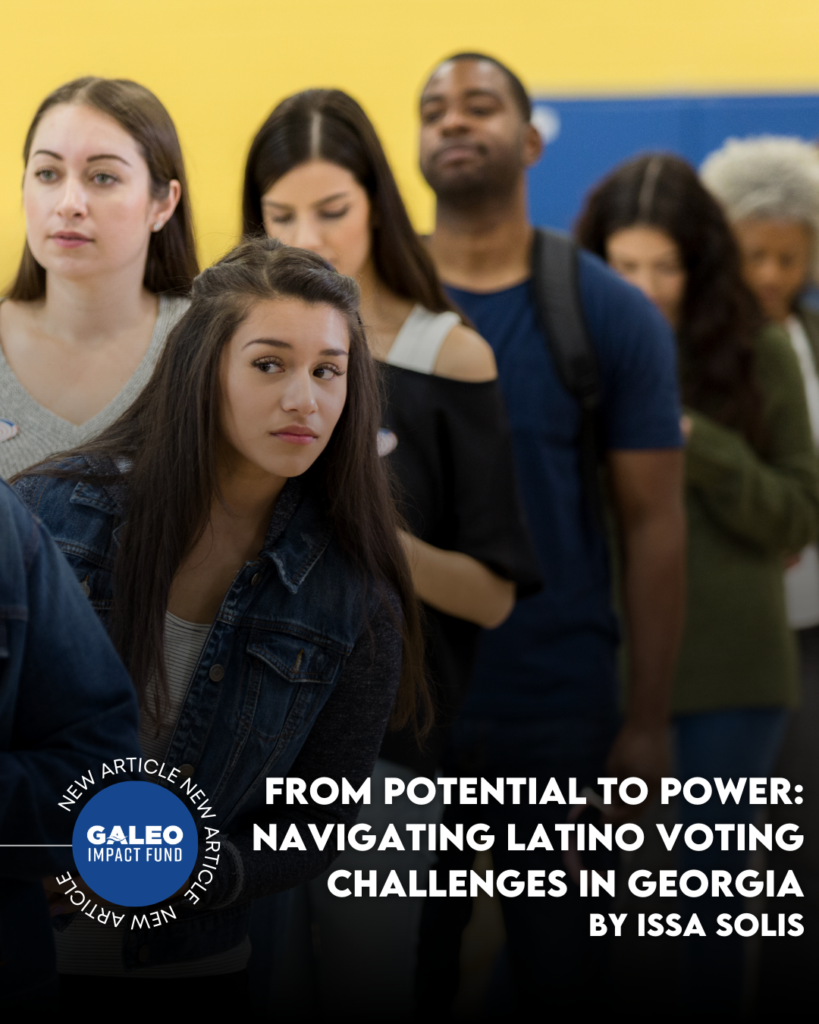By Issa Solis
After a record-breaking voter turnout in 2020, hopes were high for Latino communities in Georgia to come out to the polls in 2022. However, we did not hit the mark. As of 2021, organizations like GALEO Impact Fund have cited 385,185 registered voters within the Latino electorate, 140,995 more people than in 2016. But what is the use of those numbers if Latino voters cannot cast their vote on election day?
It is too early to know for sure what kept Latinos from voting in 2022, but what we do know is that the Latino community has been disenfranchised in the US and it needs more help voting, rather than less. The Latino electorate has been called a “sleeping giant” by many, including the New York Times, which says that the community has been waking and becoming more powerful since 2020.
The Latino community in Georgia is strong and getting stronger. Georgia elected its first lawmaker Pedro Marín in 2003. Today, we have had multiple Latino elected officials in office for 20 years and we continue to have more running to represent their communities.
Nevertheless, we cannot expect our community to make unprecedented changes in voting rates without parallel support to clear possible obstacles to voting. Many possible obstacles may prevent Latinos from voting on election day, but possibly the most important one is that our community does not feel pursued by any particular political party.
A recent survey by UnidosUS showed that almost half of Georgia Latinos have not been contacted in any form by any political party. For that reason, the Latino community has remained the “sleeping giant” because of their untapped potential.
Latino organizations and community groups must remind Latinos of the power that their vote has in this country for their interests. In addition, we must advocate for increased voting accessibility for Latino voters in Georgia.
The four counties in Georgia with the highest percentage of Latinos all have one common problem: voting accessibility.
- In Whitfield County, 35% identify as Hispanic/Latino
- Only one early voting location
- Only one absentee ballot drop box, and only during certain days and hours
- In Echols County, 29.5% identify as Hispanic/Latino
- Only one early voting location
- Only one absentee ballot drop box
- In Hall County, 28.1% identify as Hispanic/Latino
- In Atkinson County, 24.7% identify as Hispanic/Latino
- Only one early voting location
- Only one absentee ballot drop box
Still, all Georgia counties have the issue of the “My Voter Page” only being in English. For people with different levels of technology proficiency, it is important to have an easy way to access voting resources in the various languages that are spoken all over Georgia.
In order for the Latino community to live up to its potential for voting turnout, we must address these issues. As we reflect on the journey from record-breaking turnouts in 2020, to the hurdles encountered in 2022, it is clear that our journey toward increased voting accessibility for Latinos is far from over. By fostering engagement, amplifying voices, and tackling issues head-on, we can awaken the ‘sleeping giant’ within our community and forge a future where every Latino’s voice reverberates through the ballot box.
Additional sources:
